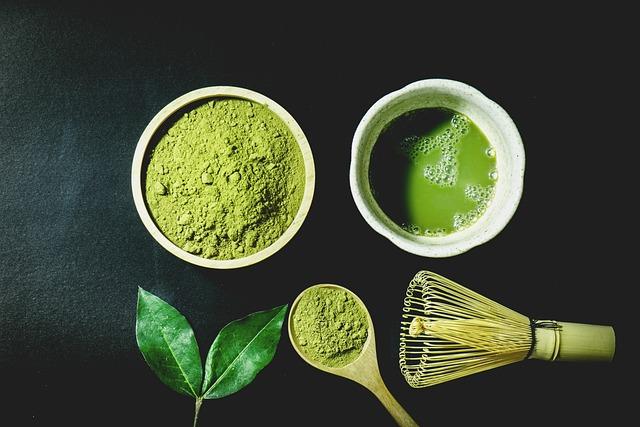Kratom is a herbal supplement made from the leaves of a tropical evergreen tree native to Southeast Asia. It has been used for centuries in traditional Southeast Asian medicine as a stimulant, sedative, and pain reliever. In recent years, it has become increasingly popular in the United States as an herbal supplement and alternative to traditional medications due to its purported medicinal benefits. However, it is important to note that kratom is not without its dangers. Many of its long-term effects have yet to be studied, and there have been cases in which the use of the supplement has been linked to serious health complications. Therefore, it is important to understand the risks associated with kratom before using it.
The Dangers of Long-Term Kratom Use
Kratom is a tropical evergreen tree native to Southeast Asia that has become increasingly popular in the West in recent years. It is often used as a natural remedy for pain and anxiety and is believed to have a range of other health benefits. While kratom has been praised for its potential therapeutic effects, there is also a growing concern about the potential long-term effects of kratom use.
Long-term kratom use can lead to a number of serious health issues. It can cause physical dependence, leading to withdrawal symptoms when the user stops taking the drug. These symptoms can include restlessness, irritability, and insomnia. It can also cause psychological dependence, leading to cravings for the drug and a compulsion to continue using it despite potential harm.
Kratom can also cause liver toxicity, including hepatotoxicity and jaundice. In addition, long-term kratom use can lead to an increase in heart rate and blood pressure, as well as an increase in the risk of heart attack and stroke. Finally, kratom use can cause gastrointestinal problems such as constipation, nausea, and vomiting.
Kratom can also have serious interactions with other drugs, including prescription medications. It can reduce the effectiveness of medications used to treat depression and anxiety and can also interact with pain medications, leading to dangerous side effects.
Overall, long-term kratom use can lead to a number of serious health risks that may outweigh any potential benefits. Before taking kratom, it is important to speak to your doctor to ensure that it is safe for you and that you understand the potential risks.
Kratom and Its Adverse Side Effects
Kratom (Mitragyna speciosa) is an evergreen tree that is native to Southeast Asia and is related to the coffee plant. For centuries, people in the region have chewed the leaves of the tree, brewed them into tea, or ground them into a powder, which they used to treat a variety of ailments, including digestive problems, muscle pain, and fatigue. In recent years, kratom has gained popularity in the United States, where it is sometimes used as an herbal supplement to treat chronic pain and other health conditions.
Although kratom has been used for centuries, it has not been extensively studied, and its potential benefits and risks are not yet fully understood. Studies have found that kratom has a range of pharmacological effects, including analgesic, anti-inflammatory, and anti-depressant properties. However, it is important to note that, like any other plant-based supplement, kratom can have a range of adverse side effects.
Some of the most common side effects associated with kratom use include nausea, vomiting, constipation, dry mouth, increased heart rate, and drowsiness. In rare cases, it has been linked to an increased risk of seizures and liver damage. In addition, kratom can also interact with certain medications and should not be taken with alcohol or other drugs.
It is also important to note that kratom is not regulated by the U.S. Food and Drug Administration, and its purity and potency can vary from one batch to another. For this reason, it is important to purchase kratom from a reputable source, and to use it only as directed. Individuals should also talk to their healthcare provider before taking kratom, to make sure it is the right choice for them.
In conclusion, kratom has been used for centuries in Southeast Asia and is gaining popularity in the United States as an herbal supplement. Although it has been found to have a range of pharmacological effects, it is important to note that it can also have a range of adverse side effects. For this reason, individuals should talk to their healthcare provider before taking kratom, and should purchase it from a reputable source.
How Kratom Can Pose Health Risks
Kratom, an herbal supplement derived from the leaves of a Southeast Asian tree, has been gaining popularity in recent years due to its purported medicinal benefits. Unfortunately, it can also pose serious health risks.
The active ingredients in Kratom, a group of alkaloids known as mitragynine and 7-hydroxymitragynine, interact with opioid receptors in the brain and produce similar effects to opioid drugs. While this can provide relief from pain and other symptoms of certain ailments, it can also lead to physical dependence and addiction.
Kratom can also cause serious side effects, such as nausea, vomiting, constipation, and liver toxicity. In some cases, it can lead to seizures or even death. People who use Kratom for extended periods of time are at an increased risk for developing mental health problems, such as anxiety and depression.
Moreover, Kratom is often sold as a dietary supplement, which means it is not regulated by the FDA. This means that it may contain contaminants or adulterants, and users may not be aware of the potential risks associated with its use.
In conclusion, while Kratom can be a beneficial supplement for certain ailments, it is important to be aware of the potential health risks associated with it. People considering using Kratom should speak to their doctor about the potential risks and benefits.
Understanding the Risk of Addiction
Kratom, a tropical evergreen tree native to Southeast Asia, is increasingly becoming a popular supplement taken for its stimulating and sedative properties. Many people use it to help combat stress, fatigue, and other physical and emotional ailments. However, there is a potential for addiction when taking kratom, and it is important to understand the risks associated with using this substance.
Kratom is derived from the leaves of the Mitragyna speciosa tree, found in the southern and eastern parts of Asia. It contains several alkaloid compounds, including mitragynine and 7-hydroxy mitragynine, which are responsible for their effects on the body. These compounds interact with the brain’s opioid receptors, producing feelings of euphoria, relaxation, and pain relief.
Kratom abuse can lead to physical and psychological dependence, and withdrawal symptoms can be severe. These symptoms can include aggression, irritability, anxiety, and cravings for more kratom. In addition, long-term use of kratom can cause organ damage and lead to addiction.
When using kratom, it is important to understand the risks of addiction. It is important to start with a low dose and to take breaks in between doses to avoid tolerance and dependence. It is also important to be aware of the potential for drug interactions, as kratom can react with certain medications and supplements. Finally, it is important to be mindful of the potential for abuse and addiction and to seek help if needed.
By understanding the risks of kratom addiction, users can make informed decisions about their use of this substance. With the proper precautions and an understanding of the potential for abuse, kratom may be a beneficial supplement for those looking for relief from physical or emotional distress.
Are There Any Benefits of Taking Kratom?
Kratom, or Mitragyna speciosa, is a tropical evergreen tree in the coffee family native to Southeast Asia. It has been used traditionally in the region as an herbal remedy to treat a wide range of ailments. In recent years, kratom has become increasingly popular in the West and is now widely available in many forms.
There is some evidence that taking kratom can have a range of potential benefits. These include providing relief from pain and anxiety, aiding digestion, boosting energy, and enhancing focus and concentration. It is also believed to have potential antidepressant and anti-inflammatory effects.
Kratom is thought to work by stimulating the release of hormones in the brain, including serotonin and dopamine. This can help to improve mood, reduce stress, and provide a sense of well-being. Kratom is also thought to interact with opioid receptors in the brain, providing an analgesic effect and potentially reducing the risk of opioid addiction.
However, it is important to note that there is still limited scientific evidence to support these benefits, and more research is needed. It is also important to be cautious when taking kratom, as there may be some potential risks associated with its use, such as nausea, vomiting, and dizziness. It is also possible that kratom may interact with certain medications, so it is important to consult your doctor before taking it.
Conclusion
In conclusion, Kratom is a dangerous supplement that can have serious health risks. It is important to understand the potential risks associated with Kratom and to use caution when taking it. It should never be taken without consulting a doctor first.






